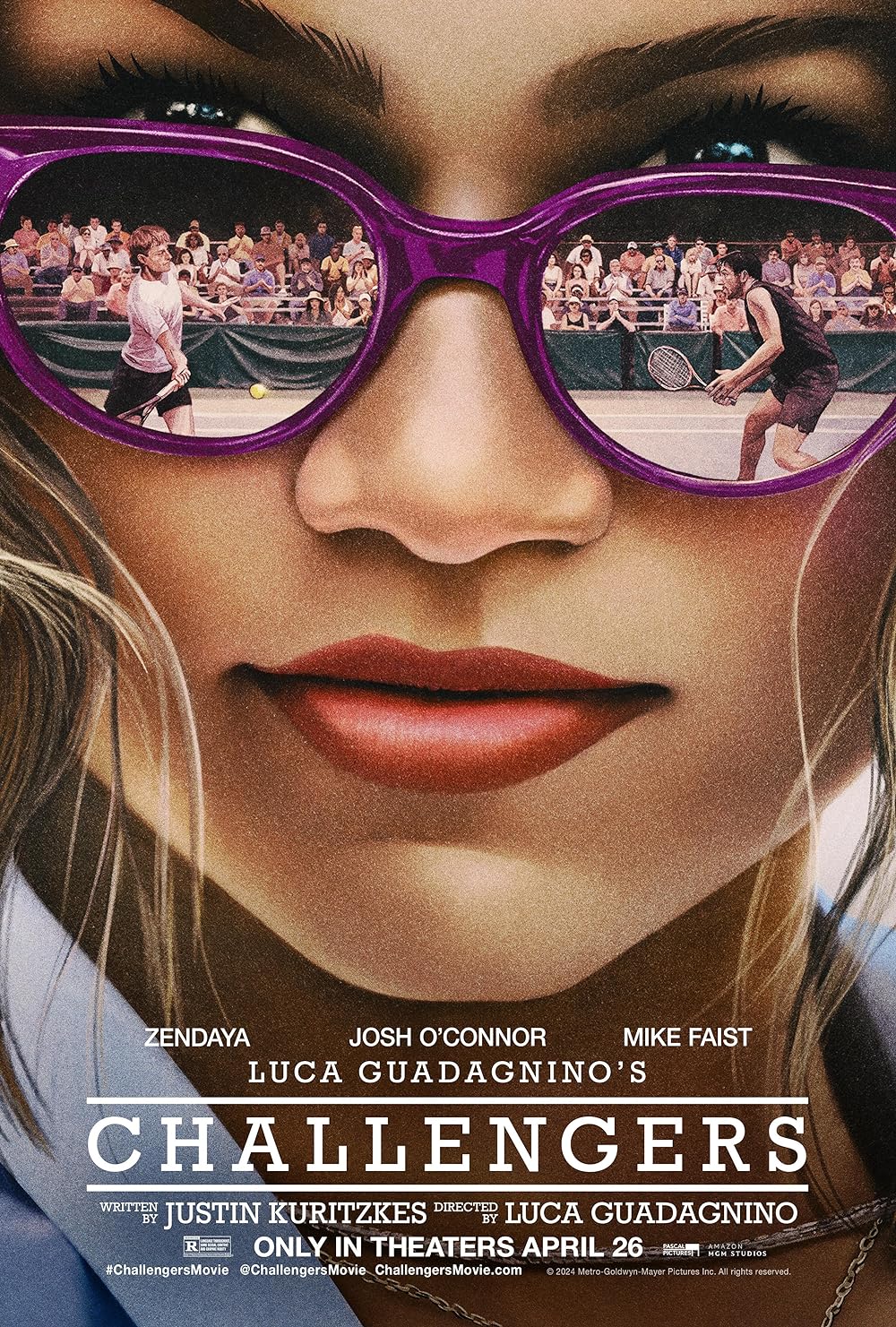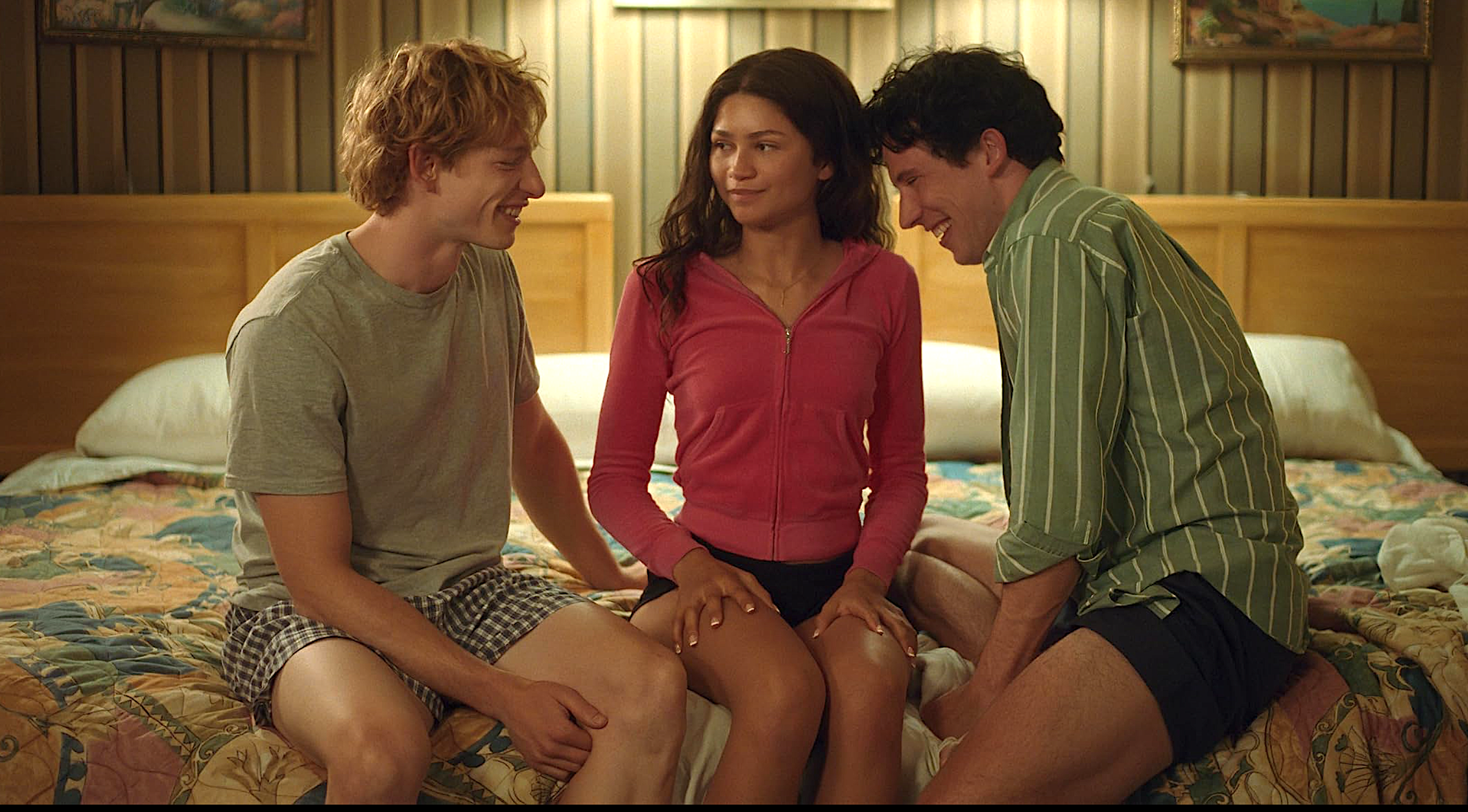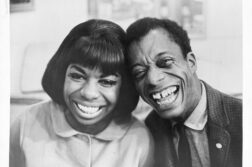 CHALLENGERS
CHALLENGERS
Directed by Luca Guadagnino
Amazon MGM Studios
IS IT POSSIBLE to combine tennis and tragicomedy? Is it possible to combine both with techno music (compliments of Nine Inch Nails’ Trent Reznor) and a throuple involving two men and one powerful woman? Director Luca Guadagnino (Call Me By Your Name) manages to pull it off with Challengers, in which he again explores the blurry line between friendship and sexual intimacy.

As the film unfolds, however, they become not playmates but the bitterest of rivals. Ever the master manipulator, Tashi ends up denying the men the three-way they so desperately desire and coyly bids them good night. The men are left frustrated, but Challengers doesn’t reveal how they relieve that built-up tension. In another scene, the two share a phallic-looking churro while discussing their idée fixe: Tashi.
She remains the figurative referee throughout this sports romance, and in the final tournament, the ATP Challenger tour, the audience is left guessing. Not to spoil the ending, but one of the men conveys, through code, that he has slept with Tashi, an effort to throw the whole triad off balance but also as a means of showing that both men’s fantasies have been fulfilled. When tennis superstar Serena Williams was asked by the Times to decode the ending, she gave Challengers her stamp of approval but spoke to many viewers’ frustration with this film: “I wanted more of an ending. … I told Zendaya, ‘Listen, is there more?’” She went on to describe the bond between player and coach as sometimes “codependent.”
I read Tashi’s elation in the film’s final shot as a sign that she has outwitted the men once again, but who can say for sure? That Patrick and Art passionately embrace, jumping over the net to hug and cry, is a clear sign that they will go on loving each other despite, or because of, Tashi. In sharp contrast to Tashi, Patrick and Art are less dumb jocks than they are marionettes in her strange game. The tennis court, like the chess board, serves as the synecdoche for romantic gamesmanship. “You’re not a tennis player!” Tashi shouts at Patrick. “It’s a relationship! It’s an open relationship!” She is playing on the multiple meanings of the word “player.” The men, meanwhile, are less willing to outplay each other and speak in softer tones: “I miss playing with you,” one tells the other.
By the end, Patrick and Art are difficult to tell apart. It becomes harder and harder to know whom Tashi is truly playing—because she sees both men as means to her ends. Regardless, what all three lovers have in common is a ruthless desire to win, though ultimately Tashi calls the shots over a thirteen-year affair. This is the inscrutability of desire that has long obsessed Guadagnino. Whether the men are friends or foes is left unclear. What is clear is that such ambiguity lies, for Guadagnino, at the heart of human sexuality. By resolving so little, Challengers reveals so much.
Colin Carman is an assistant professor of English at Colorado Mesa University in Grand Junction, Colorado. A recent article can be found in Romantic Women’s Writing and Sexual Transgression.







